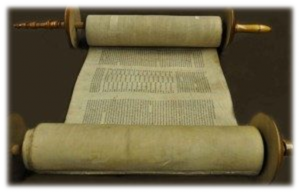JUDGES 6: AVAILABILITY vs. ABILITY
When backing up what I’m telling you in my Breadcrumbs, I am currently crossing over to use the Orthodox Jewish Bible (OJB) as my base translation for referencing, and this compared to the English translations King James Bible (KJB) and the New American Standard Bible (NASB), because of their accuracy in their selection of english-equivalent words.  Sometimes however, it’s really helpful to also look at other translations and even paraphrases like The Message (MSG) by Eugene Peterson. There were only two times that Eugene used the word “ill-filling” in all of his work covering 66 books of the bible, and the first (in the context of Matthew 11:28-30) jumped off the page when I heard it earlier this year…
Sometimes however, it’s really helpful to also look at other translations and even paraphrases like The Message (MSG) by Eugene Peterson. There were only two times that Eugene used the word “ill-filling” in all of his work covering 66 books of the bible, and the first (in the context of Matthew 11:28-30) jumped off the page when I heard it earlier this year…
“I won’t lay anything heavy or ill-fitting on you.” [MSG – Matthew 11:29]
The power of “ill-fitting” is seen in Eugene’s second use the word in Colossians 3:9-11: “Don’t lie to one another. You’re done with that old life. It’s like a filthy set of ill-fitting clothes you’ve stripped off and put in the fire…” So then, when our Maker and Father God is fitting responsibility on His children, the last thing He would do is put something repulsively ill-fitting on us. But since many live in countries where ill-fitting clothes are the least of their concerns, here’s another reason why our Maker (who created us in His own image to operate in His Likeness) would consider ability more important than availability when placing our life’s responsibilities on our shoulders…
2000 years ago, when Jehoshua ben Dovid (Jesus) in the 1st Century AD, used the idea of an oxen yoke to describe our experience as servant of the Living God, it wasn’t random. Everyone hearing it would have understood that a yoke, too heavy for an ox, would destroy its strength and cripple its ability for the task set before it.  Everyone in the village depending on that ox for all the food in the coming harvest, saw it as a prized possession. Get its care wrong, and everyone would have to chip in to get the village fields manually ploughed and seeded. If the yoke was “ill-fitting”, it would rub, bleed, fester, and eventually turn septic. If not noticed (or if blatantly ignored), the animal would be working not just with the weight of its task (that at ordinary times should have been quite doable) but with extreme pain as well, caused by the blister. With no vets, antiseptic, or animal antibiotic injections, the ox would gradually deteriorate and eventually die.
Everyone in the village depending on that ox for all the food in the coming harvest, saw it as a prized possession. Get its care wrong, and everyone would have to chip in to get the village fields manually ploughed and seeded. If the yoke was “ill-fitting”, it would rub, bleed, fester, and eventually turn septic. If not noticed (or if blatantly ignored), the animal would be working not just with the weight of its task (that at ordinary times should have been quite doable) but with extreme pain as well, caused by the blister. With no vets, antiseptic, or animal antibiotic injections, the ox would gradually deteriorate and eventually die.
It’s clear then that putting ill-fitting burdens of responsibility on our shoulders, simply because we’re available or we’re wanting the role, is not going to be a clever move. Instead, Jehoshua (Jesus) told a parable about Talents (a measure of money at the time) and how each person was given talents from their employer according to their ability.[a] Take time to read it if you can. In it you’ll notice that one was given 5 talents, one was given 2 talents, and one was given 1 talent, each according to their ability, then their Master went away. There’s no mention at all of any expectation for what to do with our Master’s (Father God’s) investment in us. Two characters in the Parable doubled what they received, and the one with four talents was praised just as greatly as the one with ten talents.  Even the one that was chastised for doing nothing at all with what was invested into him, could have simply passed the test with a mere 0.25% interest-gain at the bank. It isn’t our availability (our existence on our Maker’s Stage of Life) so much as our ability for performing a role with the investment that’s gone into the Play. This is regardless of the size of the original investment measure out to us according to our ability, nor the size of the outcome gained when trying our best to make our Life matter.
Even the one that was chastised for doing nothing at all with what was invested into him, could have simply passed the test with a mere 0.25% interest-gain at the bank. It isn’t our availability (our existence on our Maker’s Stage of Life) so much as our ability for performing a role with the investment that’s gone into the Play. This is regardless of the size of the original investment measure out to us according to our ability, nor the size of the outcome gained when trying our best to make our Life matter.
Looking at today’s chapter, this young man, Gideon, will give us an example in six ways showing us what the Creator God expects today from images of Himself, built specifically with an ability for operating in His Likeness….
-
Divine Intervention only when all else fails. [v1-5] Because our Maker created us specifically in His image with an inbuilt ability for operating in His Likeness[b], we’re virtually god on earth.[c] This unfortunately has been abused to the nth degree, as we saw in my May8 Breadcrumb with the behaviour of Adoni-bezek (whose name means god of Bezek). It’s why, quite legitimately, our Creator’s anger is “kindled against us”[d] at substandard, excuse-laced, or downright diabolical behaviour that creates a mess for everyone. [v1, 7-10] Conversely, as any good father would, He wants to sit back in prideful watchfulness to let us do it ourselves; making good choices; figuring it out on our own in a morally sound way (i.e. what would Father God do in this course of action?); then, hopefully, learn from any mistakes along the way.
 So, if you’re waiting for divine intervention to drop from the sky, or if you’re rejecting God because of what humans are blatantly doing, it’s like rejecting your father for what the playground children are doing. That doesn’t make sense. Instead, we’re to roll up our sleeves and dive into the cesspool (just as He has clearly done over and again from the beginning) and use our ability for making Him proud and pleased with our efforts, just like the Master was in the Parable of the Talents mentioned above.
So, if you’re waiting for divine intervention to drop from the sky, or if you’re rejecting God because of what humans are blatantly doing, it’s like rejecting your father for what the playground children are doing. That doesn’t make sense. Instead, we’re to roll up our sleeves and dive into the cesspool (just as He has clearly done over and again from the beginning) and use our ability for making Him proud and pleased with our efforts, just like the Master was in the Parable of the Talents mentioned above. -
He hears our outcries of desperation, yet with rightful indignation. [v6-10] When we’re like those in today’s chapter, weeping in grief before God at what is happening in our countries and in our lives, we need to be ready for the whisper of rightful response in return: “Wait, you know what I’ve done for you in the past. You knew back then that I told you ….xyz… It’s all written down in My Word, but you wouldn’t listen to my voice.” [v8-10] So to move forward with our Creator and Father God, we need to act like an adult child should when asking our human parents to ‘bail us out’ i.e. apologize for getting ourselves into the fix; take ownership, evaluate, and repent (make a 180˚ course correction to our lifestyles); make a commitment for trying to do better next time, then ask for His help.
-
The Creator God is Compassionate while providing extraordinary solutions. [v11-16] Swift to forgive and get on with the task of deliverance (and this as likely as not without a sustained 180˚ lifestyle reversal), our Father God picks the least of the least. Although the Creator God wants a humble and contrite heart[e], He doesn’t humiliate us.[f] Quite the contrary, as soon as He dusts us down, He trusts us with things that surprise even us! A modern-day example of the level of “capacity for godliness” that our Father God sees in us (He made us like Him), can be seen in the true story ending to the movie Catch Me If You Can, with Tom Hanks and Leonardo DiCaprio…
 The greatest thief in 20th Century America ends up working for the FBI Financial Fraud Squad! His boss let him go one last time with no idea if he would return. Father God saw what He had built into Gideon and He sees what He built into us then He exercises His own faith in us by using ordinary people to do extraordinary things.
The greatest thief in 20th Century America ends up working for the FBI Financial Fraud Squad! His boss let him go one last time with no idea if he would return. Father God saw what He had built into Gideon and He sees what He built into us then He exercises His own faith in us by using ordinary people to do extraordinary things. -
He knows we’re unsure, so legitimate confirmation is acceptable. [v17-24] Gideon has legitimate cultural concerns and voices them. The enemy army is huge and he comes from the least of the least. That said, he has the story of Moses going up against Pharaoh and is without excuses. But in a world awash with gods and idols and spirits, Gideon had a legitimate request for confirming: if He was speaking with the Creator God Himself. One way is through personal worship the right way [v19-20] and Malach Hashem confirms it. [v21] Father God is not playing Hide and Seek with us today. He’s playing Seek and Find. When we seek Him, we will find Him, if we search for Him with all our heart.[g]
-
Aim High Start Low. [v25-31] Patience is one of our Father God’s core traits and, like a good father, He trains us incrementally by giving us doable things before ‘the big one’ comes. In Gideon’s case, it’s a task at home. If he couldn’t stand up to his friends and neighbours in his hometown (which was daunting enough because it involved his dad), how on earth could he take on a vast army! It’s the tests at home that count.[h] After our Mikey died, I realised that our “bag of talents” included our entire life experience here on Planet Earth and how some of us don’t like what we pull from our bag. I came to realise that it’s because our Maker knows what we’re capable of (according to our ability for not just surviving but multiply His original investment along with what He sends our way) that our roles on His stage unfold as they do.
-
Set out in Faith but also in Prayer. [v33-40] Gideon set in motion a plan based on Faith in the Creator God’s Word [v34-35], but this didn’t mean he was confident. He had his doubts as we all do. “…Emunah (capitalized Faith – strong, firm, diligent faith) is the substance of things for which we have Tikvah (hope for). Emunah (Faith with a capital letter) is the conviction of things not seen…”[i] Like any good father, our Maker and Father God wants His children to have strong, firm, confident, Hope with a capital letter, in Him. That so, He is happy for us to legitimately check first (even a couple of times if needed v36-40) before launching into big things in His Name.
But today’s chapter isn’t about Gideon. Instead, it’s Father God story – HIStory. Gemstones woven into the fabric of this epic saga include: His grief; frustrated indignation; deliverance from our mess; patience while incrementally training up His workers, and compassion when we need double-confirmation. The question we all have to face today is: Do we in the 21st Century have time to bother with the Creator God at all, much less our availability or our ability? And, will we wait until the world around us is utterly besieged, before we care enough to concern ourselves with our Father who is right here beside us?
CLICK to return to today’s “Daily Breadcrumbs”
[a] Matthew 25:14-30
[b] Genesis 1:26-28
[c] Psalm 82:6
[d] Exodus 4:1-14a; Numbers 32:10-13
[e] Isaiah 66:2
[f] Hebrews 12:11
[g] Jeremiah 29:13
[h] Luke 4:14-30 (See also Matthew 13:54-58)
[i] Hebrews 11:1